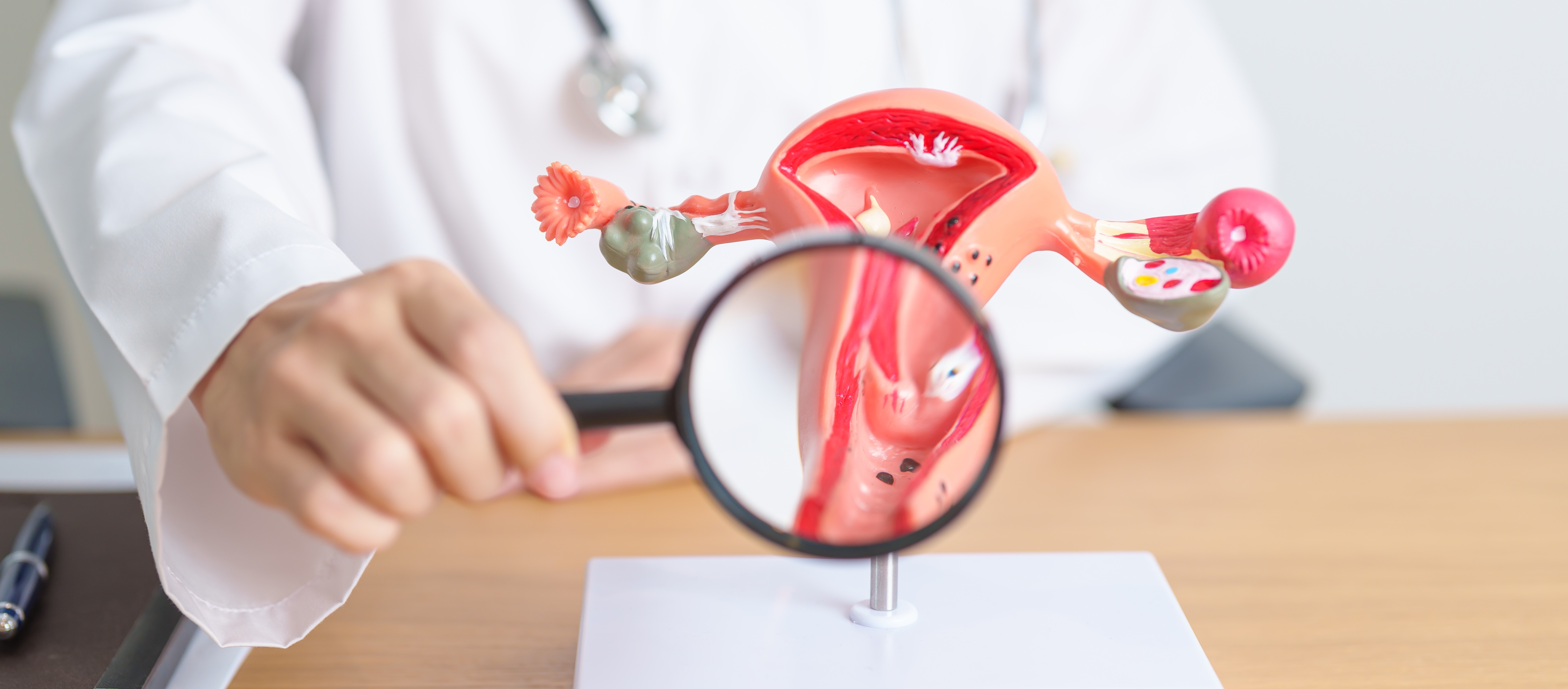Insomnia - Symptoms, Treatment, Causes & Types
Written By: Dr. Laila Mahmoud
Updated On:December 21, 2023

What is Insomnia?
Insomnia is a disorder where a person struggles to fall asleep to the extent that they regularly do not get enough sleep. Insomniacs suffer from poor quality of sleep, wake up several times at night, & feel tired during the day.
What does “Insomniac” mean?
An “insomniac” is a person that has been diagnosed with the sleep disorder Insomnia. An insomniac experiences regular trouble with falling asleep, staying asleep & going back to sleep if they wake up during the night. An insomniac struggles with getting a healthy eight to nine hours of sleep a night & experiences tiredness & concentration issues during the day.
Symptoms of Insomnia
A telltale sign of insomnia is a difficulty to fall asleep or stay asleep. Tiredness or struggling to concentrate during the day due to a lack of sleep can also be a sign that you are not getting a healthy amount of sleep. If you have been experiencing any of these symptoms for a long period of time & are struggling to cope with them, consult a Medcare specialist.
Some common symptoms of Insomnia are:
- Struggling to fall asleep at night
- Feeling tired after you wake up
- Inability to have a nap during the day
- Waking up several times during the night
- Waking up early when you finally fall asleep
- Struggling to concentrate due to tiredness
- You are unable to get eight hours of sleep at night
When to see a doctor for Insomnia?
Insomnia can sometimes be caused by international travel, stress, & emotional shock. In these cases, the insomnia goes away on its own & medical intervention is not required. If your symptoms persist & are interfering with your daily activities, it is advised to seek medical care.
Types of Insomnia
Insomnia can be caused by long-distance travel, changing time zones, particular medications, a change in lifestyle, emotional shock or grief, or simply prompted by what you consume close to bedtime. Other types of insomnia can be triggered by existing or underlying medical conditions.
There are three types of Insomnia:
- Acute insomnia: Acute insomnia is the most common type of insomnia. It can last between a few days to a few weeks.
- Transient insomnia: Transient insomnia is an extremely short-term type of insomnia that tends to last between a few days to a week. Transient insomnia is different in comparison to other types of insomnia as it could be a symptom of an underlying medical condition that needs a doctor’s attention.
- Chronic insomnia: Chronic insomnia is long-term insomnia that leaves a person struggling to sleep three or more nights a week for many months.
Causes of Insomnia
Insomnia is caused by several factors. Some common causes of insomnia are:
- Age
- Stress
- Jetlag
- Anxiety
- Depression
- Excessive caffeine
- Certain medications
- Poor sleeping habits
- Working night shifts
- Severe emotional shock
- Underlying medical conditions
Insomnia Risk Factors
It is not recommended to ignore signs of insomnia if symptoms persist & begin to interfere with your quality of life. A severe lack of sleep & not getting at least six hours of sleep every night can be dangerous.
These factors could increase your risk of getting insomnia:
Lifestyle habits
- Caffeine, alcohol, & tobacco consumption close to bedtime
- Mentally & physically strenuous activities before bedtime
- Working unusual or erratic hours, disrupting your body clock
Emotional stress
- Depression
- Long-term or sudden intense stress
- Grieving a loved one’s passing or illness
- Anxiety & overthinking when you’re trying to fall asleep
Jetlag
- Crossing time zones can make it difficult to fall asleep
Being 60 & older
- Advanced age can lead to trouble with falling asleep
Medical conditions & medication
- Certain types of medication can cause bouts of insomnia
- Certain chronic diseases & chronic pain can cause insomnia
Unpleasant sleep environment
- A switched on television or laptop screen can interfere with sleep quality
- A brightly lit or noisy environment can make it difficult to fall asleep
- A room that is too hot or cold can make it difficult to fall asleep
- Phone alerts can disturb light sleepers, making it difficult to fall back asleep
Insomnia Complications
A full eight to nine hours of sleep is recommended to stay physically & mentally healthy. Poor sleep or a lack of sleep can cause these complications:
- Tiredness
- Anxiety
- Irritability
- Depression
- Memory issues
- Concentration issues
- Gastrointestinal issues
- Decreased quality of life
- Slow reaction to your environment
- Poor quality of social relationships
Getting Diagnosed for Insomnia
Insomnia can occur when a lifestyle change, from jetlag to emotional shock, occurs. If you find yourself struggling to sleep for more than a week & that your lack of sleep is decreasing your quality of life, it’s time to consult a doctor.
A doctor will perform a physical exam & ask questions about your sleep pattern, ability to concentrate, & related topics to diagnose your condition
Insomnia Treatment
Short-term insomnia tends to go away on its own in up to a week while long-term or more complex cases of insomnia may require medication. You can opt for naturally-derived remedies from a pharmacy if falling asleep is a regular struggle. Chronic insomnia may require medical intervention.
Treatments for insomnia include:
- Acute insomnia treatment: This is a type of short-term insomnia often caused by emotional stress or anxiety. Making arrangements to go to bed earlier or over-the-counter (OTC) sleep aids like Melatonin can help with this.
- Transient insomnia treatment: Transient insomnia is extremely short-term; although it could be caused by an existing medical condition. Depending on your case, your doctor may suggest medication to help induce sleep.
- Chronic insomnia treatment: Your doctor may prescribe medications to relieve chronic insomnia. Depending on your symptoms & history, your doctor may also suggest consulting a psychologist, psychiatrist or counsellor.
Home Remedies for Insomnia
Most cases of insomnia either remedy themselves or can be relieved at home. A general rule of thumb is to decrease your caffeine intake, avoid smoking or drinking alcohol before bedtime. These can stimulate the brain & make it difficult to fall asleep. Exercise & overthinking at bedtime is also not recommended. Here are some common home remedies for insomnia:
- Be mindful about what you consume: Limit the amount of caffeine, alcohol, & tobacco you consume before bedtime. These are best avoided after a certain hour in the evening to encourage better sleep.
- Practice better sleep hygiene: Sleep hygiene are the habits you practice before & during bedtime. Limit screen time in the bedroom & avoid the temptation to scroll through your phone before you go to sleep. You can also encourage better sleep by balancing the temperature in your bedroom, ensuring it’s quiet & cosy, & keeping it dimly lit or dark.
- Sleep aids from a pharmacy: Some over the counter sleep aids that can be found at your local pharmacy are Melatonin (a naturally-occurring sleep hormone found in the body), Valerian Root (sold as a supplement), or try a few drops of lavender oil or a bunch of dried lavender under your pillow.
- Warm milk or decaffeinated tea before bed: Warm milk & hot drinks without caffeine create a sense of comfort & help with sleep.
Insomnia Prevention
Poor lifestyle patterns & erratic sleep habits can lead to insomnia. Being mindful of what you consume at night, what’s on your mind when you’re trying to fall asleep, & your exercise routine can all help avoid insomnia.
Here is how you can avoid insomnia & poor-quality sleep:
- Wake up at the same time every morning
- Turn your bedroom into a relaxing sanctuary
- Avoid thinking of stressful situations close to bedtime
- Swap your phone & television for a book at bedtime
- Give yourself enough time to fall asleep once you’re in bed
- Avoid clockwatching if you’re struggling to fall asleep
- Do not drink coffee or alcohol & smoke before bed
- Avoid intense exercise close to bedtime
Your comfort is at the heart of what we do. Our experts are always an appointment away to guide you through the right treatment plan.
Meet our doctors from the Psychiatry department



















